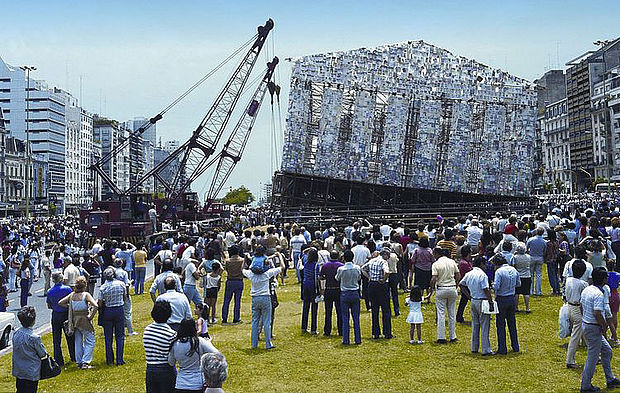The ambitious endeavour, first time exhibited outside its native country, is inspired by the intense greek challenges of economic crisis as well as the strenuous immigration wave.
The enormous contemporary art exhibition, presented every five years as a “museum of 100 days”, will share its 14th edition between Kassel and Athens, where 160 international artists will unveil their work to the audience. Art varies from painting and sculpture to performances and sound art, displayed across the city among 40 inspired public venues, such as squares, university campuses, cinemas, libraries and Athens Conservatoire.
The origins of Documenta can be traced back to 1955 when the painter and academy professor Arnold Bode showcased artworks prohibited by the Nazis. The exhibitions have embraced fundamental influencers of modern art, like the cubist Picasso and the expressionist Kandinsky, along with emerging artists.
The inauguration of Documenta 14, titled ‘Learning from Athens’, featured the Syrian Expat Philharmonic Orchestra consisted of war refugees, highlighting the dedication of this year’s exhibition to the immigration and expatriation wave of over a million refugees in Greece.
Highlights of the exhibition, include the notable ‘Parthenon of Books’ by Argentine artist Marta Minujin — a replication of the Greek landmark, contrived with 100,000 copies of banned books from the Nazis.

Documenta’s Art Director, Adam Szymczyk, mentioned: “What did we learn from Athens? That we all must abandon our prejudices and plunge into the darkness of not knowing”. Kassel mayor Bertram Hilgen also stated at news conference that art “could overcome borders, build bridges and create common ground (for people) to live together.”
Documenta 14, invokes the ideals of solidarity and humanism, aiming to abridge the tense relations between Greece and Germany and exploit modern art as a means of entente, mutual acceptance and valiant expression.